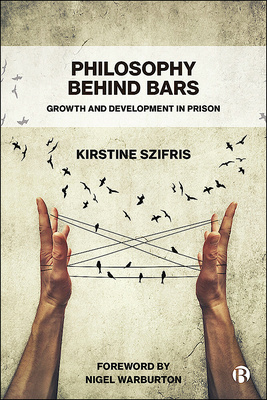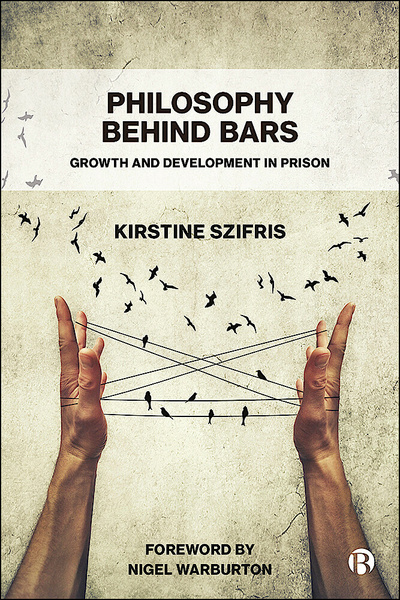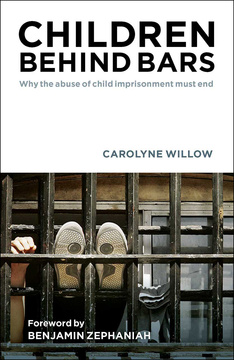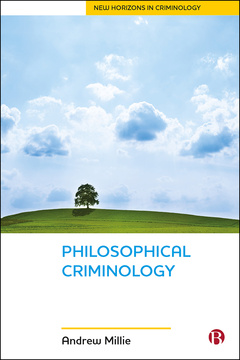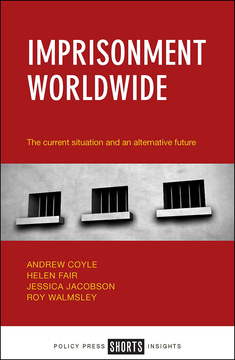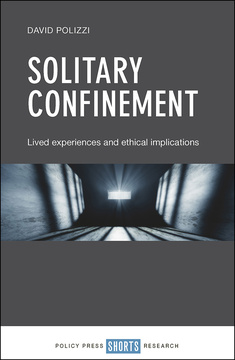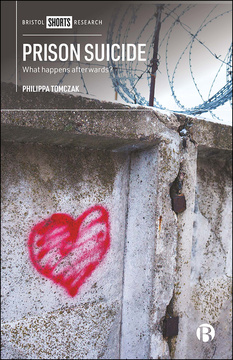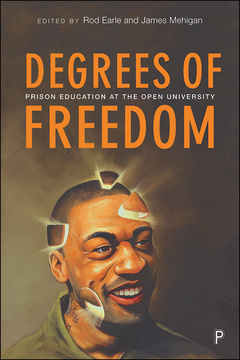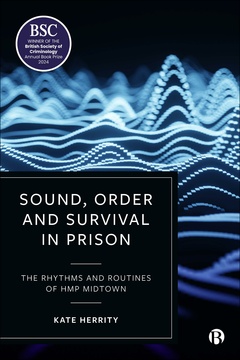Published
Jul 16, 2021Page count
264 pagesISBN
978-1529205558Dimensions
234 x 156 mmImprint
Bristol University PressPublished
Jul 16, 2021Page count
264 pagesISBN
978-1529205541Dimensions
234 x 156 mmImprint
Bristol University PressPublished
Jul 16, 2021Page count
264 pagesISBN
978-1529205589Imprint
Bristol University PressPublished
Jul 16, 2021Page count
264 pagesISBN
978-1529205589Imprint
Bristol University PressIn the media
Policy Briefing: Philosophy Behind Bars
On our blog: PODCAST: Teaching philosophy in prisons makes it more than just survival
Long-term prisoners need to be given the space to reflect, and grow. This ground-breaking study found that engaging prisoners in philosophy education enabled them to think about some of the ‘big’ questions in life and as a result to see themselves and others differently.
Using the prisoners’ own words, Szifris shows the importance of this type of education for growth and development. She demonstrates how the philosophical dialogue led to a form of community which provided a space for self-reflection, pro-social interaction and communal exploration of ideas, which could have long-term positive consequences.
“An engaging and insightful account of the meaning and effects of a philosophy course in two contrasting prisons. We learn about relationships, trust and what it means to live a good life. Read it!” Alison Liebling, University of Cambridge
“There is so much to learn from this important and fascinating book: Szifris provides us with countless examples of what a better way might look like. Everyone who wants to find hope of and resources for change in our penal system should read this book.” Fergus McNeill, University of Glasgow
“Weaving in philosophy, social science, pedagogy, and the wisdom of prison-based student philosophers, Szifris has produced the rarest of masterpieces in this engaging and fascinating work. The reader will go on a journey of discovery, identity and truth, along with the prison-based students.” Shadd Maruna, Queen’s University Belfast
Kirstine Szifris is Senior Research Associate at the Policy Evaluation and Research Unit, Manchester Metropolitan University. Before moving into academia, she worked as a teacher hosting philosophy clubs during lunchtimes and after school clubs. She has a PhD from Cambridge University which takes a humanistic approach in placing the prisoner’s voice at the heart of the research.
1. Philosophy, Identity and the ‘Ship of Theseus’
2. Towards Theory: People, Places and Voices
3. Survival, Plato and the Ideal Society
4. Kant, Bentham and the Question of Identity
5. ‘Why Do You Think That?’ Descartes, Hume and Knowledge
6. Not Just an Offender, But a Person
7. Trying to Find a Community of Philosophical Inquiry
8. Finding Trust and Developing Relationships
9. Personal Self-Exploration
10. Towards a Framework for Understanding Philosophy in Prison
11. Final Reflections







